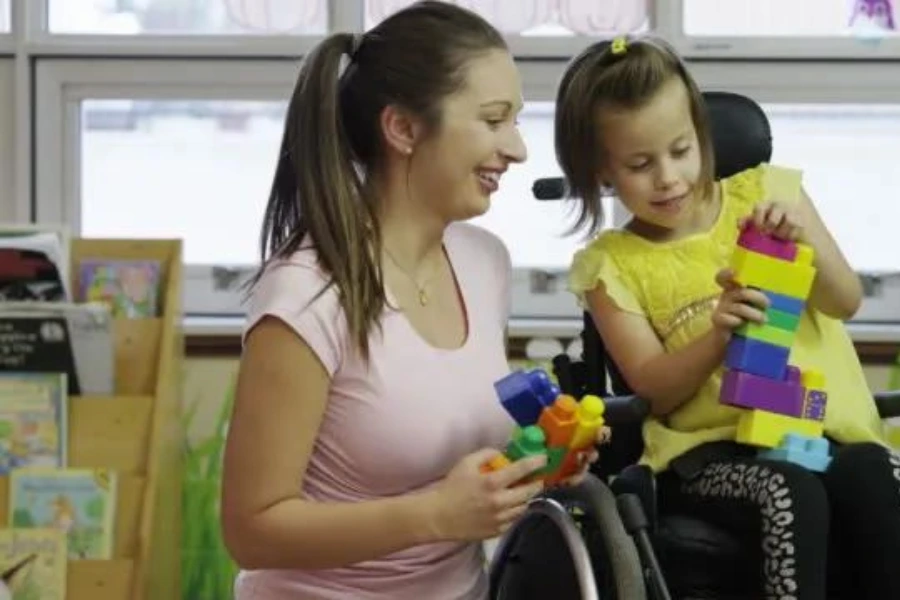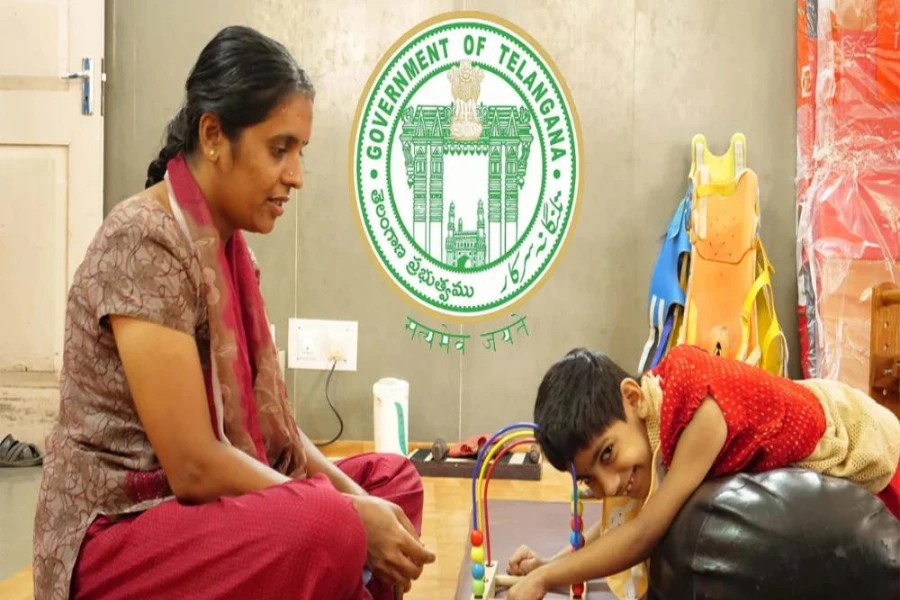
Source: gettyimages
Each child’s developmental pattern is predictable, but every kid’s progress differs as the pace at which the child obtains different skills is not the same. Children who have any learning or neurological disorder tend to process information differently, which requires teachers to offer appropriate support to such children.
Principles of Remedial Teaching is a corrective approach that provides the desired academic support children need in case they are facing a backlog due to any disability or disorder. Remedial teaching not only helps special children but also supports the topics that are already covered in class, ensuring that the learning results for all children are attained.
Remedial Teaching lays importance on creating a helpful learning environment that celebrates each kid’s uniqueness helping them to embrace their diversity and express themselves confidently without the fear of being judged or mocked.
Remedial Teaching comprises of several tested strategies along with teaching pedagogies and interventions that offers apt support as per the learning disability of the child.
For more details on the SEN Course Call/Whatsapp at +919321024137 / +919869866277
To download the brochure of the SEN Course, Click Here!

Source: tv9telugu
What are the Steps to Remedial Teaching?
Remedial Teaching aims to analyze the learning gaps and provide the desired interventions to get rid of them effectively. The steps of remedial teaching begin with first identifying where the learning gaps are exactly occurring to find out what the real areas of concern are. Once the problematic areas are identified a structured approach is developed comprising of differentiated instruction to suit the diverse learning needs of each child. Some students require additional assistance to overcome learning challenges.
Essential Steps in Remedial Teaching
Identify Learning Difficulties
Assess students through observations, classwork, and assessments to determine specific areas of struggle.
Conduct Diagnostic Testing
Use standardized or informal tests to pinpoint learning gaps and understand the root causes of difficulties.
Adapt the Curriculum
Simplify difficult concepts into smaller, convenient steps to align with kid’s learning capabilities.
Develop Targeted Teaching Plans
Design meticulously proper lesson plans that mention the learning objectives and use the key strengths of the child to engage him completely in the classroom activities by offering him guidance throughout.
Select Effective Teaching Strategies
Implement methods like visual aids, practical learning, peer tutoring, and differentiated instruction to match various learning styles.
Provide Individualized Instruction
Adjust teaching pace, content, and materials according to each student’s progress and learning needs.
Celebrate small achievements
Recognize the child’s efforts and celebrate his smallest achievement that helps to lift his morale enabling him to strive harder for better results.
Timely review and periodic feedback
Track the child’s progress by giving him periodic assessments by giving them interesting assignments in the form of projects, and quizzes doing away with the traditional methods of assessing children. Alter the teaching methods in case the desired results are not visible.
Better Parental and Specialist Involvement
Work in close unison with parents and specialists to accelerate the progress helping to build strong support for the child.
Executing Educational plans by implementing the above-mentioned methods of Remedial teaching enables children to overcome their academic challenges helping them gain knowledge in a manner that aligns with their learning preferences. When learning becomes a fun process the child immediately becomes confident enough to participate in all classroom activities completely helping them achieve academic excellence.
For more details on the SEN Course Call/Whatsapp at +919321024137 / +919869866277
To download the brochure of the SEN Course, Click Here!

Source: depositphotos
What Kind of Work is Remedial Teaching?
The Work is Remedial Teaching when it concentrates on helping students who struggle with learning by using basic method. It involves different teaching methods designed to meet individual needs, ensuring that every student gets the right support to succeed.
Types of Work in Remedial Teaching with Examples:
One-on-One Tutoring
A teacher or tutor works with a student separately to address specific challenges.
Example
A student struggling with reading fluency receives guided reading sessions with phonics exercises.
Small Group Instruction
A teacher supports a small group of students with similar learning difficulties.
Example
A group of three students struggling with fractions receives hands-on activities with visual aids to improve understanding.
Differentiated Instruction
Lessons are adapted to match different learning styles and abilities.
Example
A teacher provides extra worksheets for advanced students while using simplified exercises for those needing more practice.
Multisensory Instruction
Focus on using the key strengths of the child, especially the sensorial methods that stimulate his thinking skills.
Example
When a child is given a tactile card for learning letters while tracing the letter and saying it aloud it creates a better understanding through the touch and sound.
Using Innovative advanced technology-based methods.
Digital tools and apps personalize learning.
Example
A child who faces issues while reading can use apps such as Text-to-speech helping promote letter cognition and fostering comprehension skills.
Group Based Learning
Children get into groups and collaborate for learning.
Example
Children form pairs or groups to make a presentation or project to learn about a topic that includes research finding different solutions to problems and learning together.
The work is remedial teaching when instruction is adjusted to each student’s needs, ensuring that learning becomes easier and more engaging. These methods help students gain confidence, improve skills, and achieve success at their own pace.
What is the Remedial Teaching Cycle?
Students with learning difficulties require specialized support to help them grasp fundamental concepts effectively. The Remedial Teaching Cycle is a structured approach designed to identify and address these learning gaps systematically in Special Education Needs Course. Vidhyanidhi Education Society (Govt. Regd.) offers a Special Education Needs Course that equips educators with the skills to implement effective remedial teaching strategies for students who need additional academic support.
Key Components of the Remedial Teaching Cycle
Diagnosis
Calculate student performance through tests, observations, and other evaluation methods. Recognize specific learning gaps and misconceptions that delay educational progress.
Planning
Develop individualized learning plans structured to the identified needs of each student. Select proper teaching approaches and resources to address the specific difficulties.
Intervention
Deliver focused instruction targeting the identified learning gaps. Use separate teaching methods to match various learning needs.
Monitoring and Evaluation
Conduct regular assessments to observe student progress and measure improvement. Adjust teaching strategies based on the student’s responses and feedback.
Re-teaching and Reinforcement
Provide additional support or re-teach concepts that students find challenging. Incorporate practice activities and exercises to strengthen understanding.
Key Aspects of Remedial Teaching
Individualized Approach
Each student gets customized instruction based on their unique learning needs.
Early Intervention
Identifying learning difficulties at an initial stage and addressing them on time improves educational success.
Collaboration
Teachers work together with experts, tutors, and support staff to ensure students get well support.
The Special Education Needs Course offered by Vidhyanidhi Education Society (Govt. Regd.) prepares teachers to effectively apply the Remedial Teaching Cycle, ensuring students with learning difficulties get the necessary support to achieve educational success.
Elevate your teaching skills with Vidhyanidhi Education Society’s SEN Course today!
For more details on the SEN Course Call/Whatsapp at +919321024137 / +919869866277
To download the brochure of the SEN Course, Click Here!
Principles of Remedial Teaching
FAQs
What is the Aim of Remedial Teaching?
Through focused instruction, remedial teaching aims to close learning gaps, build skills, and increase confidence in difficult students.
What is the Advantage of Remedial Teaching?
Remedial education increases confidence, improves understanding, boosts performance in school, and offers students who require more support adapted methods of learning.
What is a Remedial Course?
A remedial course helps students improve fundamental skills in weak subjects. Vidhyanidhi Education Society offers expert training to equip educators for effective remedial teaching.



